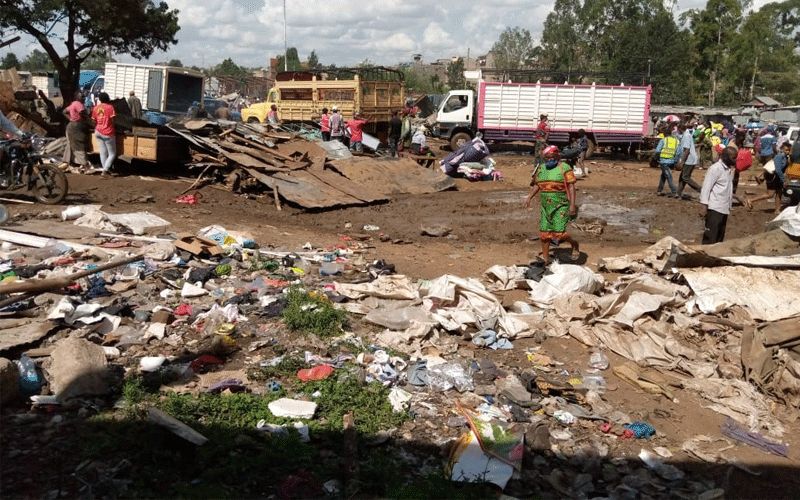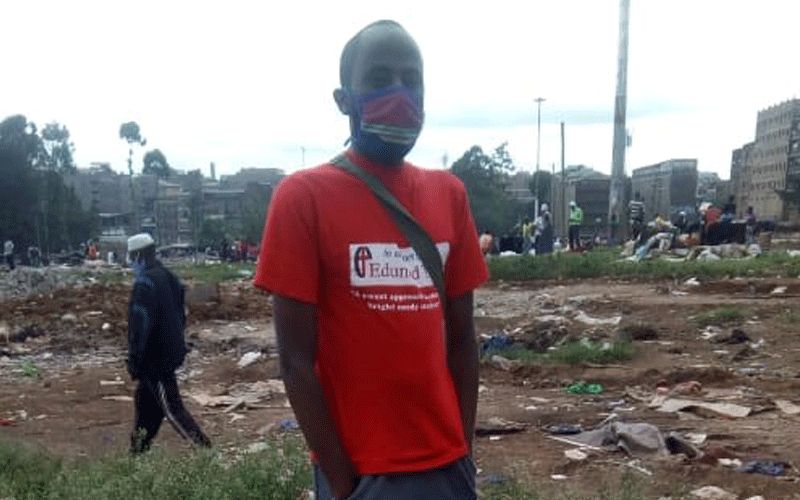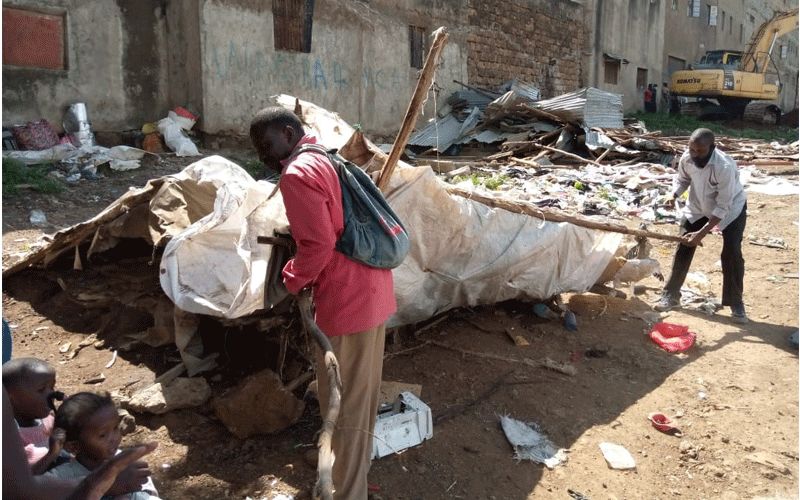That day, Mwangi who is popularly known by Kariobangi North residents as Katope, jolted into motion, rallying for support on his social media platforms to aid those who had been victims of the demotions.
When he spoke to ACI Africa on Thursday, May 7, Mwangi said that his colleagues and friends on social media had already taken in 13 children from families that had been rendered homeless.
Katope, he shares, is coined from a Swahili name for mud.
“They call me Katope,” he says, adding, “I have the darkest complexion in my family. I am also the shortest among all my siblings. Since I was a child, my family and friends called me Katope and joked that I was the nearest to the ground and I was as dark as mud.”
A university graduate with a degree in Mathematics, Mwangi could have easily landed a teaching job at a secondary school with a good salary. But raised in slums, he says the poor slum children need him most.
(Story continues below)
“I look around and I see deprived schools, which can’t afford to pay for the services of a university graduate. That’s why the schools mostly hire low-caliber staff. Anyone who is willing to take a humble salary while university graduates go to top schools,” he says, adding, “My mantra is ‘let the slum children read’ and that’s why I am here.”
Today, Mwangi has taken in Merrick and his family and the six are staying in the teacher’s two-roomed house where they are provided with food and a roof over their heads while the elderly woman combs nearby informal settlements for an affordable house.

“They came here with very few personal items since everything they salvaged had been stolen. I have had to buy a few blankets for the boys and their grandchildren. Merrick sleeps on my couch,” says Mwangi, referring to his guests.
“I try to make them as comfortable as they can and we share the little food I get. But for some reason, Merrick’s grandmother feels uneasy. I wish she could try to relax as we make plans to get her a house,” the teacher says, adding that he is also hunting for a house for the older woman and her family.
Fr. Andrew Wanjohi who is in charge of Holy Trinity Catholic Church in Kariobangi north, a parish that serves the evictees said the demolition was “a nail on the coffin of a situation that was already desperate”.
“This is pain on top of the pain that people were going through because of coronavirus. Most had lost their jobs when the government imposed the dusk-to-dawn curfew. And now, they have been literally left in the cold,” said Fr. Andrew, a member of the Comboni Missionaries.
When we spoke to the Kenyan-born Comboni Missionary, he said leaders at the Kariobangi north parish had already met to discuss how to help people who had been rendered homeless following the May 4 demolitions.
“We haven’t done much in the meeting other than just embark on identifying people who have been adversely affected by the demolitions. Some of them have moved in with their families around the city but there are those who don’t have anywhere to go,” Fr. Andrew said, and called on parishioners at the church to reach out to those in their circles who had been affected.
Agnes Aineah is a Kenyan journalist with a background in digital and newspaper reporting. She holds a Master of Arts in Digital Journalism from the Aga Khan University, Graduate School of Media and Communications and a Bachelor's Degree in Linguistics, Media and Communications from Kenya's Moi University. Agnes currently serves as a journalist for ACI Africa.











